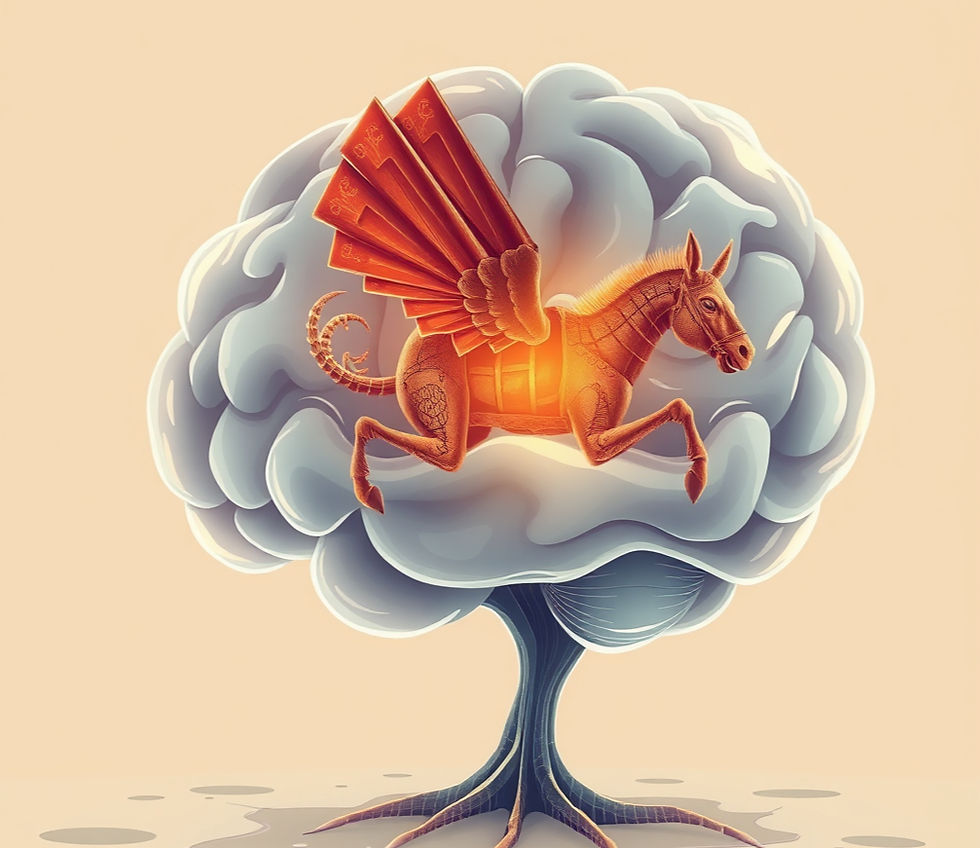What to do when your empathy abandons you.
- Megan Filoramo

- Aug 5, 2022
- 4 min read

One of the most common concerns of overwhelmed and exhausted nurses is that they’ve lost their empathy. It somehow just up and left, abandoning them with a job to do and without the soul to do it.
And that’s a terrible feeling.
But why does this happen and more importantly, does it mean it’s time to leave nursing and get another job? Is this an irreversible and terminal problem with no possible recovery?
It certainly feels like that. After all, what is a nurse without empathy?
A nurse without empathy is a nurse who desperately needs some empathy.
Sounds obvious but let’s break it down.
Empathy is “the capacity to understand another person’s experience from within that person’s point of view” (Bellet,1991). But when a situation gets really bad, when we get continuously overwhelmed and exhausted with continued care of others in a less than healthy environment, our body freaks out and goes into protection mode.
Yup, reductions in empathy are in fact our bodies’ defense mechanism. When your brain sees you are really struggling it pulls away, it goes into hiding, it hunkers down. Instead of leaning further into the work, we lean out in an effort to retain energy and minimize distress. It’s like when the body goes into shock, and it diverts all the blood from the periphery to the vital organs.
And this would be great… if it worked.
But there is an unfortunate byproduct of reflexively pulling away, we interpret the withdrawal of empathy as personal failure. And because this is such a painful place to be (no one wants to be a non-empathetic failure), we resort to the next defense mechanism; looking for external reasons to hold responsible for the lack of empathy. After all, if an outside situation is the source of this change, we can minimize the personal pain of self-judgment. AKA, we blame our job, or our coworkers, or something outside of ourselves.
And why would we judge ourselves for “losing” empathy? Because when we think we have no empathy, we equate this to punishing the patient which is at direct odds with why we went into this work in the first place. So, we punish ourselves for theoretically putting our patients in this position.
This means we end up with a lovely tower of lack of empathy, overwhelm, and shame.
No wonder why we feel like we can’t go on.
There is a simple, 2-step approach that can turn this around and it goes back to a nurse without empathy is a nurse who needs some empathy.
Step 1: Start with yourself and focus your attention (and care) inward.
If you aren’t sure how to do this, start by asking yourself three simple questions.
How are you feeling, love? Tell me all the things.
What are you going through right now?
Is this feeling legitimate? (A key component to empathy is the legitimization of what the person is feeling… and I am pretty sure how you are feeling right now is totally legitimate.)
How can I have compassion for the person going through all that?
We HAVE TO DROP THE JUDGMENT, and these questions will help us do just that. They help us appreciate our own humanity and not just our role as a nurse.
Step 2: Show curiosity in 1 patient, don’t even bother with empathy. Ask them a personal question about anything and then a follow-up question. This will bring their humanity front and center and the rest will fall into place. We naturally connect with other people when we can see them on a human level and not just as a diagnosis, room number, or a job we have to get done. You don’t have to start with all your patients, just one.
Skeptical? This approach of leaning into the work instead of leaning out (which is a misleading defense mechanism) is supported by the Conservation of Resources theory. The connection that we get from leaning in and becoming more involved actually increases our overall resources and resilience to withstand burnout and overwhelm. It will build us up, not deplete us.
Connect with yourself. Have empathy for yourself. Give yourself some space to figure all this out.
Then connect with just one patient.
The rest will take care of itself. Your empathy can’t abandon you any more than your stomach can, it’s a built-in part of you. If it’s hiding, it’s because you need to take some time to see yourself.
Your empathy is there and waiting when you are ready, but it can’t be re-activated until you use some on yourself.
If being empathetic toward yourself seems awkward or hard, I can help you with that. And right now, I am trying to see how many people I can help before summer’s end. I am giving away free, one-hour sessions to 10 people. No strings attached, just an hour of coaching to help jump start feeling better. There are still a few spots available if you want in, just DM me.
What do you have to lose?
And more importantly, what do you have to gain?




Comments